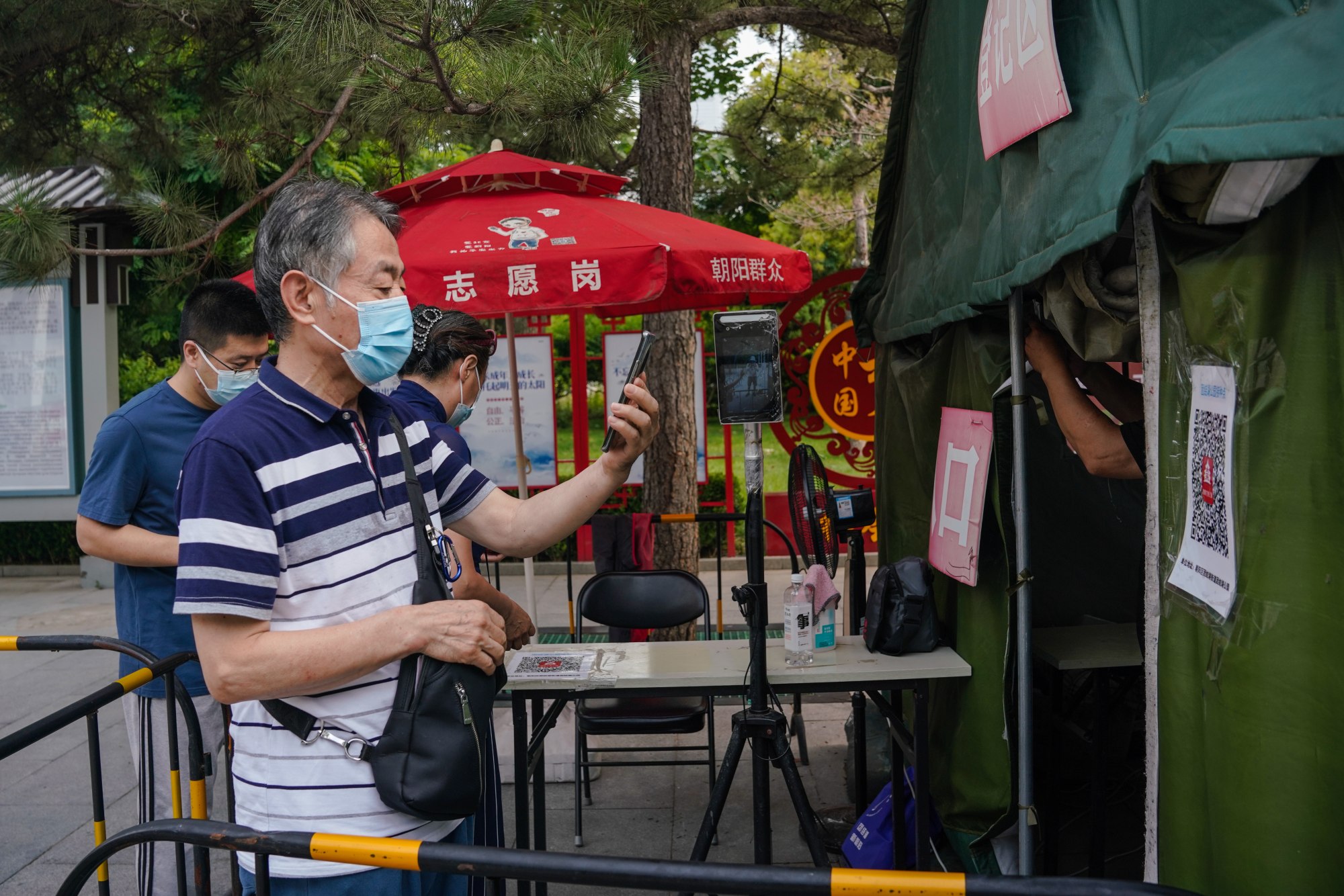
China needs a national Covid vaccine mandate. One bungled roll-out in Beijing doesn’t change that
- The Chinese capital’s attempt to compel residents to get vaccinated was met with such a backlash that the authorities are unlikely to try it again soon
- But that would be a great shame. China must educate its citizens about the importance of vaccines if it ever hopes to find a way out of the pandemic
There’s an old Chinese saying about “issuing an order in the morning and rescinding it in the evening” that’s used to mock impulsive officials for making snap decisions that they are later forced to retract just as abruptly – causing widespread confusion and denting government credibility.
Examples of such sudden U-turns abound, and the bureaucrats who make them deserve all the humiliation they receive for pushing ill-conceived and unpopular directives.
But every so often they will bungle a well-intentioned decision that has far-reaching implications, eliciting more feelings of disappointment than ridicule.

That’s what happened with the Beijing municipal government’s recent flip-flop on a vaccine mandate at a time when the whole country is struggling with an untenable zero-Covid policy in the face of the highly-contagious Omicron variant.
On July 6, a senior official from Beijing Municipal Health Commission surprised the whole nation by announcing that the capital city’s residents would need to show proof of vaccination, starting from the following Monday, to enter gyms, cinemas, and other public spaces.
Apparently, Beijing intended to become China’s first major city to deploy a vaccine mandate – a practice adopted in many other parts of the world – and set an example for other cities to follow.
China must switch from mass testing to vaccinations to leave zero-Covid behind
But how the municipal officials misjudged the public mood. The immediate outcry, not only from residents of the capital but also the rest of the country, forced the authorities to back off their vaccine mandate on the night of July 7, and offer reassurances that people would still be still able to enter the capital’s public spaces with proof of a negative virus test and a temperature check as had been the norm.
For a brief few days, Li Ang, a deputy director of the health commission who made the announcement, became public enemy No 1 and the focus of online wrath.
This would have been more in line with China’s long-standing practice of using a major city as a testing ground for controversial policies with national implications. If successful, such policies are then applied nationwide.
Deploying a vaccine mandate should have been a significant step forward, signalling a major shift in the government’s thinking on how to deal with Covid-19
That the capital had to stage a humiliating retreat probably means neither the central government nor local authorities will touch the issue again any time soon. But this would be a great shame.
Deploying a vaccine mandate should have been a significant step forward, signalling a major shift in the government’s thinking on how to deal with Covid-19 now that the pandemic is more than two-and-half years old. It’s something that many healthcare officials and businessmen have been urging the central government to do for a long time.
China is the world’s last major economy to insist on a policy of closed borders and excessive virus control measures spanning snap lockdowns, mass testing, long quarantines and severe restrictions on movement. It has become common practice for local authorities to respond to a handful of cases by shutting down entire cities of millions of people for days on end. Lanzhou, the provincial capital city of Gansu province, became the latest example of this when the city of 4 million residents was placed under lockdown for a week starting from July 11.
But China’s leaders know full well that this whatever-it-takes approach to stamping out Covid is unsustainable and its negative impact on the economy is severe. Economic costs and public dissatisfaction are growing by the day. Youth unemployment is in the double digits and discontent over heavy restrictions has led to periodic protests on the streets. Foreign investors have also become increasingly vocal about the need to relax over-the-top pandemic-control measures.
China may never abandon zero-Covid publicly, but an easing is inevitable
In response, the central government has gradually started to moderate some of its more extreme measures. Travellers from overseas, for instance, now only have to undergo 10 days of quarantine – seven in a designated hotel and three self-isolating at home – instead of the previous three weeks of isolation. Chinese airlines have also restarted more international flights and health authorities announced on Tuesday that they would stop testing some imported goods for the virus – a costly and unnecessary measure.
More importantly, people’s thinking about the virus and how to suppress it has also changed significantly. The latest wave to strike China, fuelled by the Omicron BA.5 subvariant, may be highly contagious but most cases have shown few if any symptoms.
The time is now right for China to shift its resources from mass testing to vaccinations. Doubling down on the former instead of promoting the latter has proved costly and disruptive.
For this shift to take place, the government needs a comprehensive plan to educate and prepare the public for a change. Beijing’s vaccine mandate debacle shows how badly such a programme is needed.

Much of the blame for this rests with the Chinese government’s ambivalence towards vaccinations. On the one hand, China is the world’s largest manufacturer and exporter of inactivated vaccines and more than 90 per cent of its population of 1.4 billion people have received at least two shots. On the other, the government has been dragging its feet on promoting vaccinations among the elderly – the most vulnerable group. Many of China’s old people haven’t received any doses of vaccine at all.
The authorities have sent people to mass quarantine centres against their will and locked them up inside their own homes, but when it comes to getting vaccinated leniency has been the order of the day under a principle of “informed, voluntary consent”. Until recently, national health authorities had rebuked some local governments for forcing the elderly to get vaccinated.
China’s inactivated vaccines may have a low efficacy rate against the latest subvariants and may not stop people from getting infected but they have proved to protect all age groups against severe disease and death – particularly with booster shots.
Human cost of China’s zero-Covid policy measured in stress, anxiety
Beijing’s vaccine mandate debacle doesn’t have to mean that the central government should get cold feet. On the contrary, it’s high time for China’s leaders to consider a national vaccine mandate.
Doing so requires a well-thought out plan, including public education – and allowing imports and manufacturing of foreign mRNA vaccines to boost people’s confidence.

